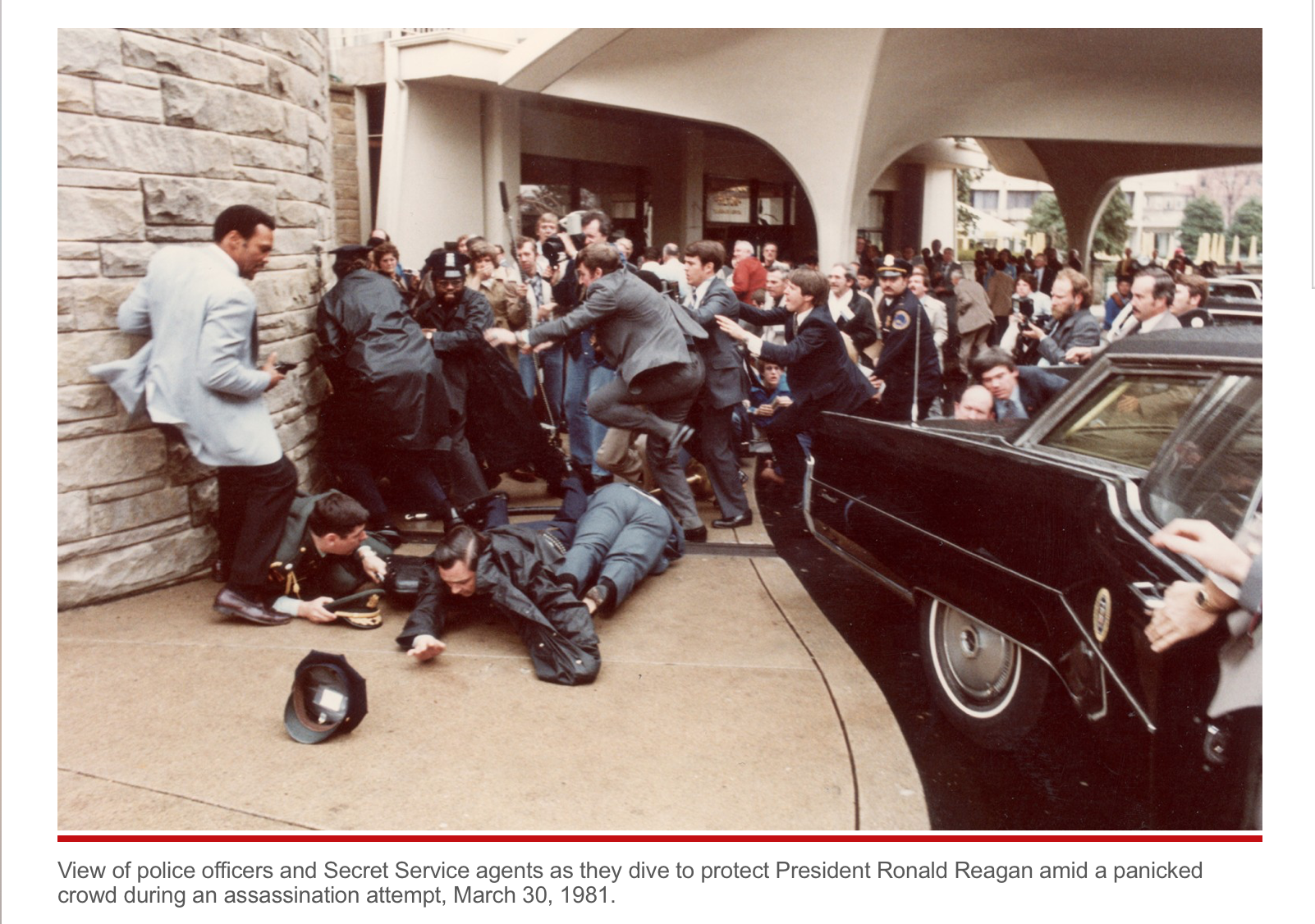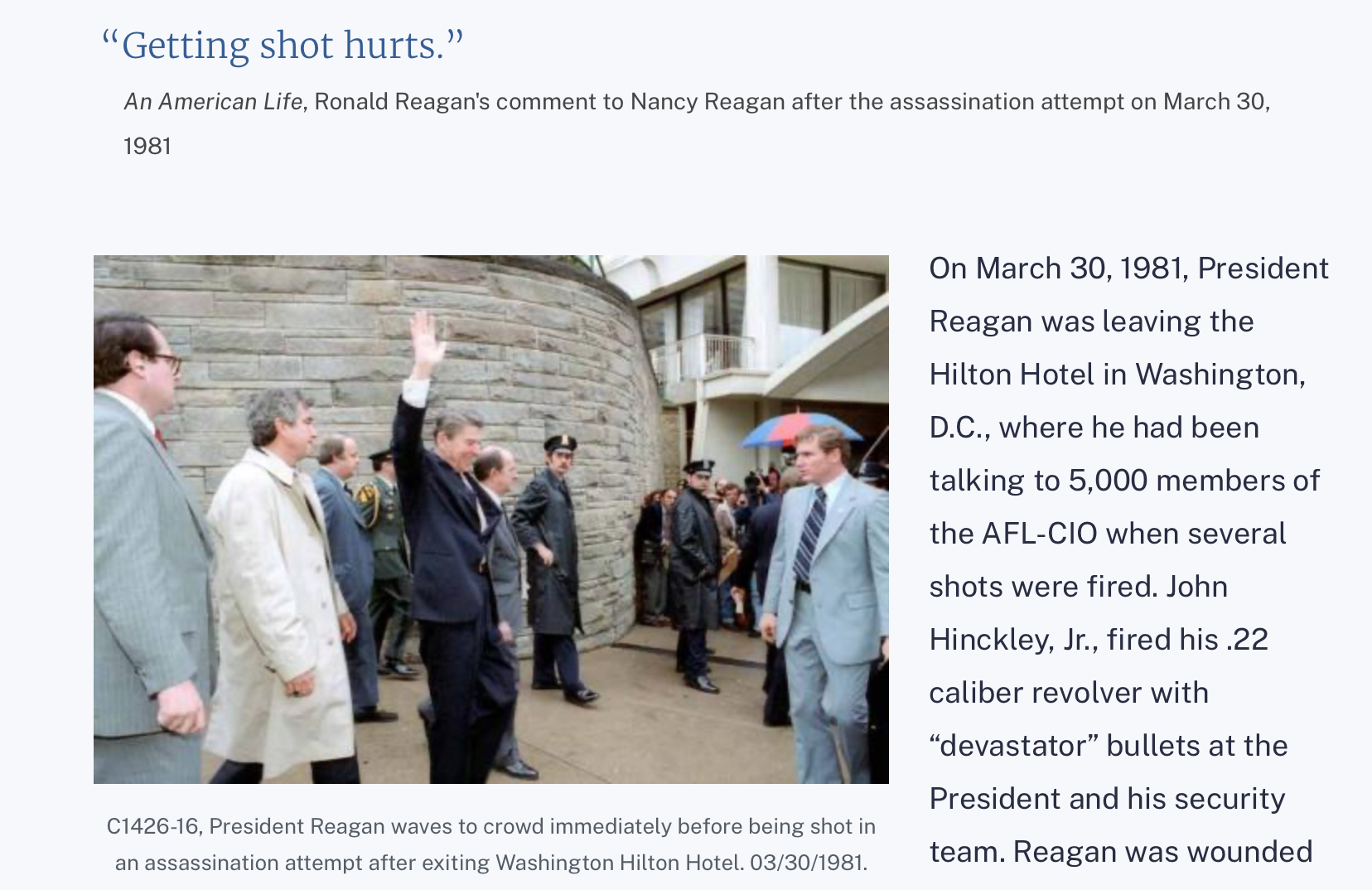It was a terrifying day in 1981.
Commemorated on the website of the Ronald Reagan Presidential Library & Museum, here is the image of President Ronald Reagan emerging from a Washington, D.C. hotel, right before John Hinckley Jr. tried to assassinate him – along with Reagan’s quote to wife Nancy.
The library explains the devastating impact of Hinkley’s reprehensible act – an act I view as a direct attack on our president, our country, and our freedom. It’s an act we shouldn’t allow to fade with time.
Reagan was wounded when one of the bullets ricocheted off of the limousine, striking him under the left armpit. Press Secretary James Brady, Secret Service Agent Timothy McCarthy, and policeman Thomas Delahanty were also wounded during the shooting. President Reagan’s wounds were not noticed until he began to cough up blood. He was then taken to the George Washington University Hospital. After twelve days in the hospital, he was able to return to the White House with a new commitment to changing the relationship between the United States and the Soviet Union.
Hinckley was found not guilty by reason of insanity, reportedly obsessed with actress Jodi Foster. Having now been judged to have recovered from his mental illness, he is free.
On Monday, his lawyer struck a deal with federal prosecutors that could grant him “unconditional” release from the conditions imposed for his release from St. Elizabeths Hospital in Washington, DC.
Those conditions also bar him from possessing a gun and from contacting Foster, Reagan’s children, the other victims of his attack or their families.
During Monday’s court hearing, DC federal Judge Paul Friedman said all the restrictions would be lifted in June if Hinckley continued to follow them and remained mentally stable.
This week the focus has been on Hinckley, but I hope you will join me in thinking about the people he tried to kill and the lives he forever altered. For Hinckley, it’s over. But for his victims, the horror and sorrow is forever.
The screenshot below is from the New York Post, which memorialized the carnage in its story about Hinckley. I encourage you to read the story in full. It includes pictures of Hinckley today.




